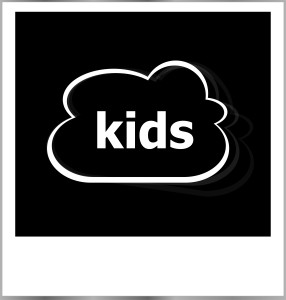Speech Therapy for Kids: 4 Topics to Discuss With Your Speech Therapist
Our series this week talks about your child’s first visit to a speech therapist. Once your child has been diagnosed with a speech impediment or a speech disorder and your appointment is set, you want to make sure to be as knowledgeable and organized as possible in order to get the best out of the first visit. We have given you a handful of tips on what to expect from your first visit to the speech therapist. After the visit is complete, you can expect your SLP to review the results of your child’s evaluation and recommend a treatment plan. But there should be more to it. The results aren’t always cut and dry. You will want to make sure to cover the following topics so you are well informed about your child’s treatment going forward.
Speech Therapy for Kids: 4 Topics to Discuss with Your Speech Therapist
What are the results? After the initial evaluation, your child may be eligible for speech therapy services through the school or through your insurance plan. Ask your speech therapist if she believes that your child is eligible and if so, have your SLP describe to you, in detail, the criteria he used to make that determination. Once you determine if your child is indeed eligible for speech therapy services you can start to plan the necessary next steps. If your child is not eligible, ask your SLP to recommend a few activities that you can do with your child at home to increase speech and language skills and support communication at home. Additionally, your SLP should be able to suggest other resources in the community that may be valuable for your family.
Prognosis: Your child’s SLP will discuss her findings with you in terms of the severity of the speech disorder. Most often, this diagnosis will be termed mild, moderate, severe or profound. You may want to ask the speech therapist’s professional opinion on how treatable your child’s issue is. Some children’s test results may originally be described as severe; however, the SLP may say that your child’s particular issue is relatively treatable. Your therapist may suggest different types of speech therapy, behavioral therapy or alternative methods to treating your child’s speech impediment.
Treatment and Duration: Once you’ve completed the evaluation process and the speech pathologist explains your results, the two of you should discuss the length of time that you can expect your child to be in therapy and how often it should be scheduled. Therapy length and amount needed depend on your goals, the type of therapy itself, and the severity of the speech impediment.
While some therapy programs offer a standard amount of therapy in a set length of time, such as 30 total hours across a four-week time period, for many people it takes a longer period of time to overcome a speech disorder. Shorter, more frequent sessions may be good for children with attention issues, children who fatigue easily, or children who may have a hard time retaining information. Your therapist may suggest speech therapy two or three times per week for an hour for several months, or once a week for a year. A severe speech impediment, such as stuttering may take anywhere from 6-18 months, attending therapy two times per week. Work with your SLP to come up with the best treatment and duration plan that specifically works for your child.
Goals and Expectations for Success: As you work with your speech pathologist to set your goals, you will also set your criteria for success. Becoming an effective communicator and building normal speech and language skills should be included as important goals. If your child is starting speech therapy at an older age, it may mean a more intense speech therapy experience as it includes changing long-standing speech behaviors. If your child has severe stuttering, completely eliminating the stutter may not be a realistic expectation, but reducing the frequency may be a good goal. Part of the therapy could also include work with your child to reduce word avoidance, using other forms of communication such as proper eye contact or decreasing the tension associated with your child’s particular speech impediment.
Listening to your SLP’s results and recommendations is not enough. Make sure to ask tough questions and get specific. Remember that old commercial on TV where celebrities said, “the more you know…?” In this case it rings true! The more you know, the more informed decisions you can make on behalf of your child when it comes to treating speech impediments in children.



